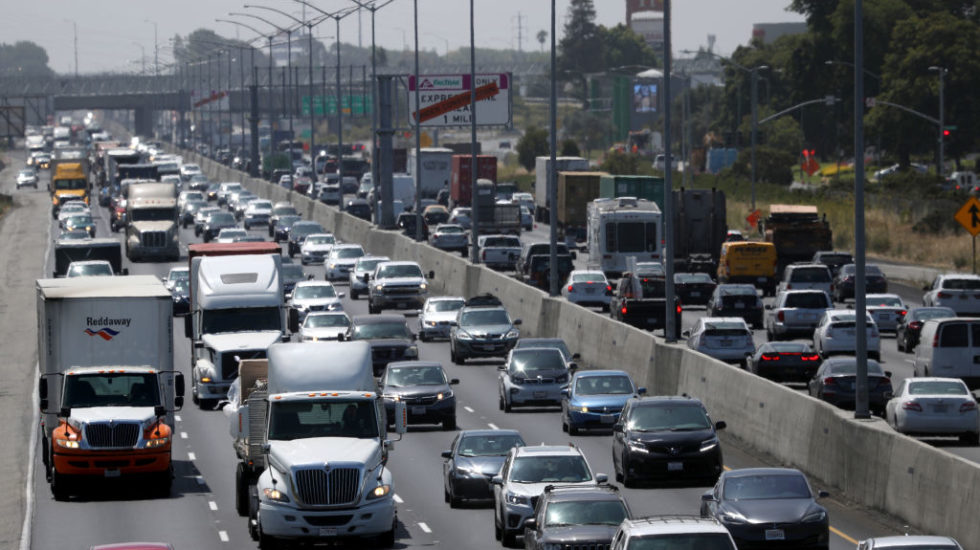The auto-emissions war between Donald Trump and California is about to reach a climax of sorts, although it appears to be far from over.
The administration “is expected on Wednesday to formally revoke California’s legal authority to set tailpipe pollution rules that are stricter than federal rules,” reports the New York Times.
The Times describes the impending action as “a move designed by the White House to strike twin blows against both the liberal-leaning state that President Trump has long antagonized and the environmental legacy of President Barack Obama.”
Notably, the announcement planned by the Environmental Protection Agency will come as Trump is in the Golden State, part of a campaign swing through the Southwest.
“The formal revocation of California’s authority to set its own rules on tailpipe pollution — the United States’ largest source of greenhouse emissions — will be announced Wednesday afternoon at a private event” at EPA headquarters, the Times says, citing “two people familiar with the matter.”
The administration’s action could put four major automakers in a tricky position.
Ford, Honda, Volkwagen and BMW North America all reached an agreement with California in July to continue raising the fuel-economy of their fleets well beyond the mileage standards envisioned by the EPA. Also affected will be 13 other states that follow California’s clean-air rules.
That prospect drew a sharp retort from EPA administrator Andrew Wheeler, who spoke Tuesday to the National Automobile Dealers Association.
Speaking of California, Wheeler said: “The Trump administration really has to kick the bully off the playing field, and then the automakers will start talking more sensibly.”
But environmentalists weren’t having it, vowing to challenge the EPA action in court, and predicting they’ll win.
“There’s nothing in the Clean Air Act or EPA regulations providing for this unprecedented action,” Martha Roberts, a senior attorney at the Environmental Defense Fund, told the Washington Post. “The legislative history is explicit about broad authority for California. This is very well established legal authority that’s firmly anchored in the Clean Air Act.”
The Post noted California’s “unique history” of severe pollution, and its decades-long fight to clear the air.
“Smog in Los Angeles had become crippling at times throughout the 1950s and into the 1960s. As scientists focused on motor vehicle exhausts as a key culprit in air pollution, state officials worked to develop the nation’s first vehicle emissions standards in 1966,” the Post says.
Ironically, it was Ronald Reagan — the state’s Republican governor at the time — who “established the California Air Resources Board … to undertake a statewide effort to address widespread air pollution,” the Post says.



